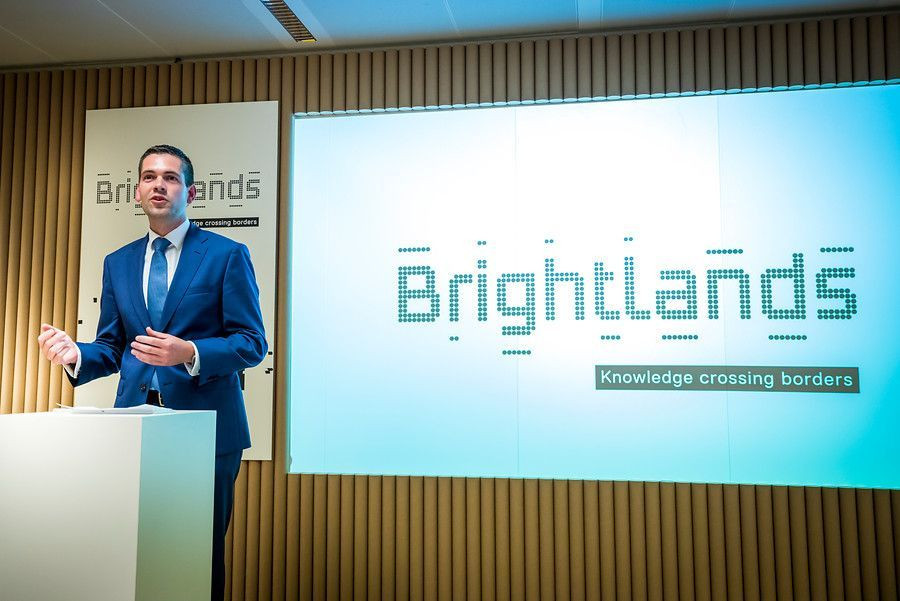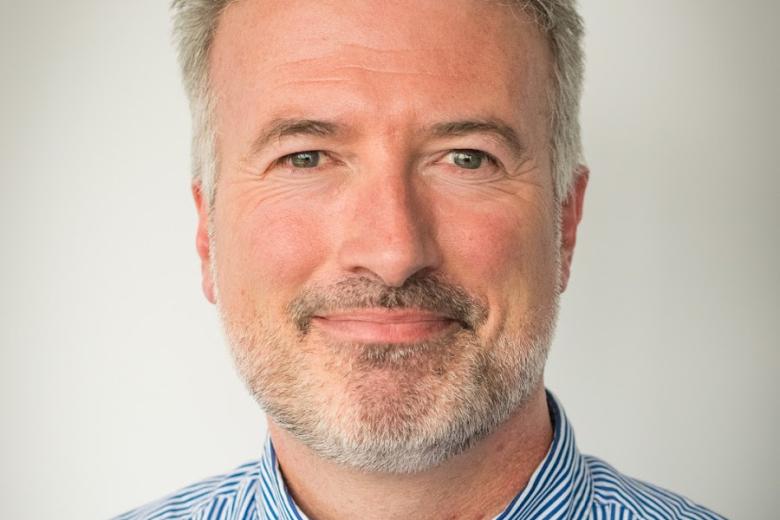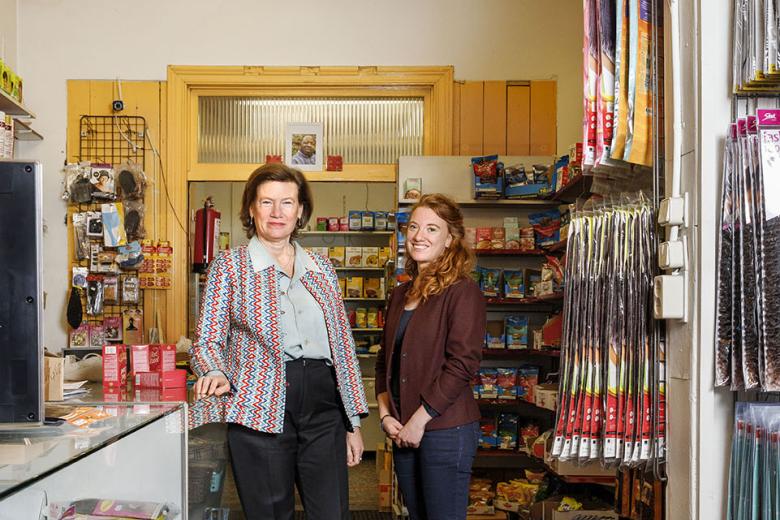‘Brightlands campuses indispensable for the Limburg economy’
Deputy Joost van den Akker sees more international opportunities
The Buck Consultants International report “Inventory and added value of campuses in the Netherlands” lies on his desk, hot off the press and full of praise about the developments at the Brightlands Campuses in Geleen and Maastricht. These campuses are ranked high on the list of over 80 Dutch campuses, mostly because of the jobs they generate. “This is confirmation for us that the course we pursued at the time was the right one,” Joost van den Akker says.
Van den Akker is the successor of Twan Beurskens who, as deputy, was very closely involved in the birth of the campuses. “The cooperation between the province, municipalities, business and knowledge institutes has resulted in a network structure in which innovations and new products actually get off the ground. The province has invested tens of millions of Euros in the initiative, and this is now paying off in extra jobs, among other things.
There are a few thousand knowledge workers that have been recruited for Maastricht and Geleen with many more indirect jobs following in their wake. I always say, ‘You would be lucky to work at Brightlands.’ In a short time, the campuses have become indispensable for the economy in Limburg. The biggest mistake we could make is to rest on our laurels. There are huge opportunities for continued development, and also for being an international trendsetter in bio-based materials and sustainable developments.”

Playing field
According to the Buck researchers, the Brightlands Campuses in Maastricht and Geleen belong to the category of campuses in the Netherlands that are working on the latest developments. These are centers where knowledge institutes, research institutes and governments meet and work together. “When you have a playing field like this, you can’t afford to go without a single player,” according to Joost van den Akker. “In my view, a campus without active involvement from business doesn’t stand a chance. At Chemelot, it was DSM that got involved and in Maastricht, this was the teaching hospital. Although the hospital isn’t technically a business, it is still a large organization with room for entrepreneurs. The number of spin-offs is growing and start-ups are looking for facilities and knowledge. This is visible in the development of employment.”
Driver
Buck’s study covered the period from 2014 to 2018 and has seen a 74 percent increase in the number of jobs at the Maastricht Health Campus. This figure is 27 percent for the Chemelot Campus. The Brightlands Campuses in Heerlen and Venlo are still too new to be able to arrive at any conclusions in this regard. “The roles of APG and CBS are very important at the Smart Services Campus in Heerlen. These are large companies that hold a major attraction for researchers and smaller businesses. We haven’t seen a commercial organization that has this effect yet in Venlo. A party like this would be very welcome to boost rapid development at the agri-food campus. Nonetheless, the developments at both campuses are still very promising.”
Own identity
Joost van den Akker wants to make sure the four campuses aren’t judged by the same criteria. “They are four different campuses, each with its own identity and field of expertise, not to mention its own pace. Each offers added value in different sectors and markets. The major strength is the connection between them and their collective communications about the brand name Brightlands.
Research on healthy nutrition is closely related to the activities at the Health Campus in Maastricht. The search for new, sustainable materials for medical applications in Geleen also fits in with this work. In Heerlen, it’s all about big data, new technologies such as blockchain, and sustainability; these are naturally applicable to the work being done at the other three campuses.”
According to the deputy, the preference is still to project an image to the outside world under a single campus name, both nationally and internationally. “In the Netherlands, we are part of the Brainport top tech region. The goal is for Brightlands to be known worldwide as the ultimate specialist in sustainability, health, digitization and nutrition. In terms of marketing, we still have quite a lot of work to do. We are not really etched in the collective memory yet even though there are actually so many opportunities beyond our borders.”
Networking
The strengths of the four campuses are the broad facilities, the available knowledge and the networks, according to the deputy. “We offer entrepreneurs customization, particularly SMEs. Researchers, scientists and students face substantive challenges. Maastricht University and Zuyd University of Applied Sciences also have various programs operating in Geleen. The special UM master’s degree programs and the Fontys study programs are popular in Venlo. Education is becoming anchored, more start-ups are sticking around longer, and established businesses are coming to Limburg. These are all great developments. Highly educated people stay and the brain-drain is tapering off. I would like to advocate for attracting even more knowledge institutes to the campuses such as the Maastricht School of Management, Open University, and the United World College. The foundation could be broader since this is also what drives cross-border partnerships. Professors from the RWTH in Aachen are already teaching classes at Chemelot, and there are UM students in Aachen. This is the proof that it’s possible, breaking down barriers. You do however need as many parties as possible to achieve this.”
Brussels
The goal set at the start of the initiative in 2008 was for the campuses to become the driving force for the new Limburg economy. It would appear that this mission has been accomplished, but Joost van den Akker looks even farther ahead. “In 2023, various investment programs will come to an end. Ultimately, various parts of the initiative will have to be able to fend for themselves, without support from the province. We will naturally remain a partner and also want to participate in the further expansion of the different campuses. Investments will however always be collectively borne by the government, knowledge institutes and business. I think that we should be able to take more advantage of European subsidy programs. Brussels offers a lot of advantages, particularly for initiatives in the areas of sustainability and cross-border partnerships. Lobbying is important; this isn’t a task reserved solely for the province.”
Also read
-
Maastricht University and YERUN - A recap and a glimpse into 2024
Maastricht University is an active member of the Young European Research Universities Network, championing values of innovation, openess and responsibility.

-
Empowering Smallholder Farmers in the Data Economy: Unlocking Opportunities and Overcoming Obstacles
Frederik Claasen, the head of policy at our partner organisation Solidaridad Network on the opportunities and obstacles facing smallholder farmers in their data ecosystems.

-
How do involuntarily returned migrants fare in Senegal?
The PhD research of Karlien Strijbosch focuses on Senegalese migrants who were forced to return home after a stay in Europe. Doing justice to such stories is no easy feat, especially when you come up against walls of silence, distrust and shame. Strijbosch and her supervisor Valentina Mazzucato...
